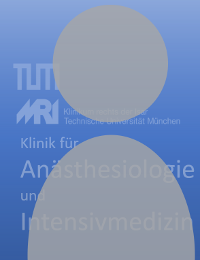„Climate change is the biggest global health threat of the 21st century“
(Costello et al., “Managing the health effects of climate change”, The Lancet, 2009)
Numerous medical organisations consider climate change the single largest medical emergency today. Together, they have decided to take action in order to minimise the extent of global warming.
To contribute to this task, our department for anaesthesiology and intensive care has launched a climate change work group. Its aim is to make health care as environmentally sustainable as possible, without compromising on quality.
To achieve this, we examine the environmental footprint of various common medical practices, techniques and agents, so that this aspect can be taken into consideration when weighing up different options in day-to-day patient care. We hope that our anaesthesiology department can serve as a prototype for others in this regard. Beyond that, we are also aiming to put our hospital on the path to carbon neutrality through interdepartmental projects. To ensure that future health care professionals are made aware of the challenges posed by climate change, and learn how they can play a role in managing them, we are looking to integrate climate change topics into the medical curriculum at TUM.
Another area of focus for our climate change work group concerns the role that we as medical doctors can and should play in a society facing climate change. For example, we are currently investigating the potential for divestment of German physicians’ pension funds.
We are in the process of initiating co-operations with similar groups in Germany and abroad, and look forward to getting in touch.
Co-workers:
Frederick Schneider
Adrian Baumann
Neal Conway
Dr. Charlotte Lingg
Agata Paszko
Claudia Wassermann (employee of commercial management department)
Prof. Dr. Gerhard Schneider
PD Dr. Christian Schulz (c.schulz@tum.de)
Co-operations:
- Potsdam-Institut für Klimafolgenforschung
- Institut für Geschichte und Ethik in der Medizin, Technische Universität München
- Hochschule Darmstadt, Fachbereich Wirtschaft
- Technische Universität Berlin, Fakultät Wirtschaft & Management
Publications:
Schulz, CM. Die Anlagestrategien der Deutschen Ärzteschaft beruhen auf Grundannahmen, die nicht mehr gültig sind. Ärztliche Psychotherapie, 17(1), 40–45. 2022. https://doi.org/10.21706/aep-17-1-40
Mezger NCS, Thöne M, Wellstein I, Schneider F, Litke N, Führer AG, Clare C, Kantelhardt EJ. Klimaschutz in der Praxis – Status Quo, Bereitschaft und Herausforderungen in der ambulanten Versorgung.
Z. Evid. Fortbild. Qual. Gesundh. wesen (ZEFQ).2021; https://doi.org/10.1016/j.zefq.2021.08.009(link is external)
Baumann A, Conway N, Schneider F, Schulz CM. Zero Emission Hospitals: Nachhaltiges Wirtschaften im Gesundheitssektor
Impu!se für Gesundheitsförderung 2020; 107, 9-10.
Conway N, Baumann A, Gucwa N, Schneider G, Schneider F. Perioperative Medizin: Die klimafreundlichere Narkose
Deutsches Ärzteblatt 2020; 117(25): A-1258 / B-1064.
Schneider F, Gogolewska J, Ahrend KM, Hohendorf G, Schneider G, Busse R, Schulz CM. Do private German health insurers invest their capital reserves of €353 billion according to environmental, social and governance criteria?
J Med Ethics. 2020;0:1–6. doi:10.1136/medethics-2020-1063811(link is external)
Schulz CM, Ahrend KM, Schneider G, Hohendorf G, Schellnhuber H, Busse R. Medical ethics in the Anthropocene: how are €100 billion of German physicians' pension funds invested?
Lancet Planet Health 2019;3(10):e405-e06. doi.org/10.1016/S2542-5196(19)30189-5(link is external)
Further Reading:
Traidl-Hoffmann C, Schulz CM, Herrmann M, Simon B. Planetary Health - Klima, Umwelt und Gesundheit im Anthropozän (1. Auflage ed.): MWV Berlin(link is external). 2021.
Schulze J. Klima und Altersvorsorge - Diagnose: unklar. Süddeutsche Zeitung 2020(link is external).
Schulz CM. Medical ethics in the anthropocene – the health sector must divest from industries impacting planetary health. JME Blogs 2020(link is external).
Schulz CM. Auswirkung des Gesundheitssektors auf das Klima(link is external). Ringvorlesung Umwelt der TU München, Referat für Umwelt, Studentische Vertretung der Technischen Universität München.
Schulz CM. Klimaschutz im Gesundheitswesen (radio contribution). B2 Notizbuch(link is external).
Schiemann G, Steuber C, Gogolewska J, Lehmkuhl D, Herrmann M, Schulz CM. Ärztliche Verantwortung in der Klimakrise - zwischen Ethik und Monetik - Divestment im und durch den Gesundheitssektor(link is external). KLUG - Deutsche Allianz Klimawandel und Gesundheit e.V. 2021.
Hahn U, Herrmann M, Traidl-Hoffmann C, Schmincke E, Schulz CM. Für eine klimagerechte Gesundheitsversorgung in Deutschland (Version 1.0)(link is external). KLUG Deutsche Allianz Klimawandel und Gesundheit. Zenodo. 2021.
Bein T, Koch S, Schulz CM. What’s new in intensive care: environmental sustainability(link is external). Intensive Care Med. 2021.
Schmiemann G, Steuber C, Gogolewska J, Lehmkuhl D, Schulz CM. Medical responsibility in the climate crisis-the investment strategies of German Doctors’ pension funds: a conflict between ethics and monetisation.(link is external) One Health Implement Res 2021;2:43-50.



